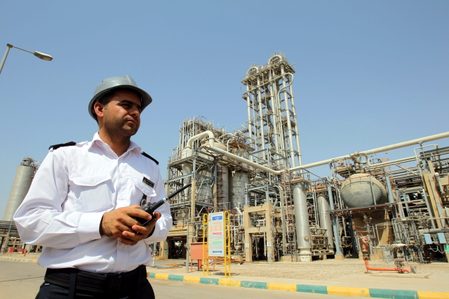SUMMARY
This is AI generated summarization, which may have errors. For context, always refer to the full article.
Three years after the end of the Marawi siege, residents of its decimated urban center face another obstacle in their bid to return to their homes: a pandemic slowing down government approval processes for the rebuilding of houses.
Marawi City Majul Gandamra partly blamed the pandemic quarantine restrictions for the slowdown in his government’s issuance of building and repair permits, documents that residents need to be able to return to their homes and begin their construction.
“It slowed down due to pandemic. People are not going out, we have MECQ (modified enhanced community quarantine),” he said on Friday, October 23. It was on this day, 3 years ago, when the government declared an end to all combat operations in Marawi City.
He was optimistic that, if restrictions are loosened, the evaluation of applications would go on “full swing.”
Lanao del Sur, the province where Marawi City is located, has been under MECQ since September 8. It will stay in this classification, in which public transportation is suspended and only essential businesses allowed to operate, until at least October 31.
There are 861 coronavirus cases in Lanao del Sur as of Thursday, says the health department. Of these, 177 are active cases.
MECQ is bad news for Marawi residents who have been waiting for building permits.
Some 2,100 building permit applications remain pending in the city’s building official’s office. Of this, over 1,800 had complete documents.
Only around 800 households are actually within Marawi’s “most affected area” to rebuild their houses, said rehabiliation czar and human settlements secretary Eduardo del Rosario.
Occupancy permits have been issued for only 86 houses, said Gandamra.
This is a small portion of the roughly 6,400 structures that Del Rosario says were damaged by the 5-month siege.
“Most of us have not been allowed to return to our homes and rebuild our lives,” said vocal citizens’ group Marawi Reconstruction Conflict Watch.
“There has been no compensation for the damages to our personal properties. Thousands of us remain in shelters and housing projects in dire conditions, with sanitation and the supply of basic utilities wanting,” they added.
Other reasons
Apart from the pandemic, many issues hounded the process for issuing building permits, the golden ticket for Marawi residents to go home at last.
These include overlapping claims of land ownership and the need to verify the authenticity of land titles presented to the city, said Gandamra.
He could not say how long, on average, it took for the city to process building permits.
The Marawi task force has promised to finish the rehabilitation by December 2021, which Del Rosario said means “90%” of the infrastructure projects would be completed.
So far, the following projects are undergoing construction:
- Grand Padian Market with ice plant
- Marawi museum
- Peace park
- School of Living Tradition
- Barangay complexes with madrasah centers
- Integrated school building
- Road networks with solar lamps and underground utilities
- Armed Forces of the Philippines maritime outpost
- Mapandi Bridge
- Banggolo Bridge
- Rehabilitation of mosques using private sector funding
- Energization of sectors 1 and 2 of the city
Outside the MAA, the government is also supervising construction of a Marawi City fire substation, new city jail, and police station, among others.
‘No real liberation’
Del Rosario gave assurances that the construction projects are “on track” and that “normalcy and economic growth have gradually returned” to Marawi City.
But the Marawi Reconstruction Conflict Watch lamented how only a third of the rehabilitation’s P60.5 billion budget, or P22.2 billion, has been released.
“The dismal amount on top of issues on disbursement and absorptive capacity in the past paint a bleak picture for us all,” said the group, noting that only 16 months remain until the December 2021 deadline.
The “slow” progress in reconstruction works “fuels despair and frustration that threaten the fragile peace in our communities,” they added.
Though Marawi civil society groups had asked Duterte to certify as urgent a bill giving them compensation for their damaged properties, he has not yet done so.
Duterte, the first Mindanaoan president, did not even mention Marawi City in his last State of the Nation Address.
The House of Representatives approved their version of the bill at the committee level in early September. In early March, a similar bill was filed in the Senate.
This state of affairs falls short of Del Rosario’s own expectations last year that a bill would be passed by Congress passed “within the first quarter” of 2020. – Rappler.com
Add a comment
How does this make you feel?



![[Time Trowel] Evolution and the sneakiness of COVID](https://www.rappler.com/tachyon/2024/02/tl-evolution-covid.jpg?resize=257%2C257&crop=455px%2C0px%2C1080px%2C1080px)


There are no comments yet. Add your comment to start the conversation.